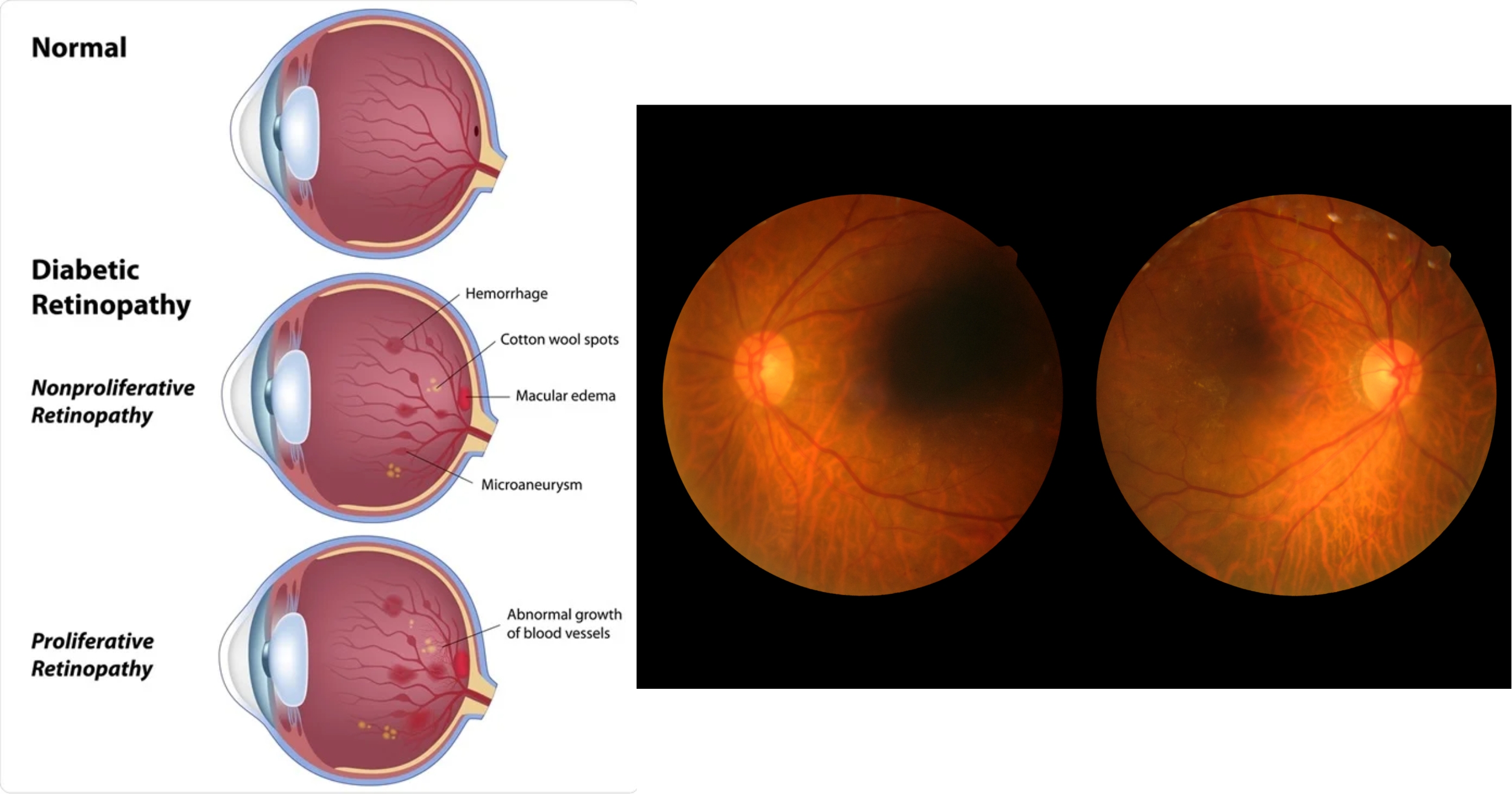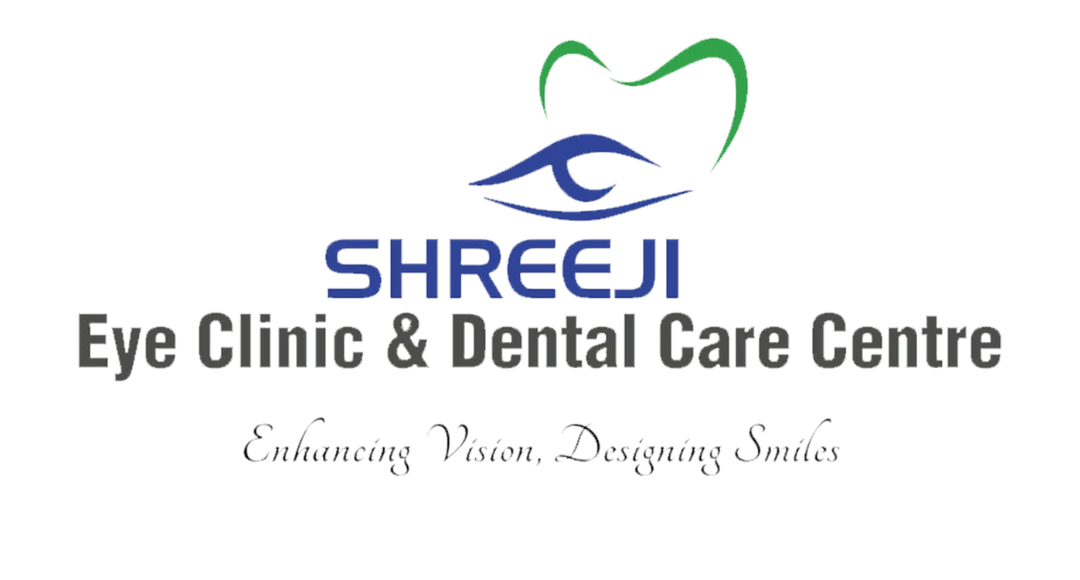Diabetic Retinopathy Treatment In Mumbai
- Home
- Diabetic Retinopathy
Diabetic Retinopathy Hospital in Mumbai
The eye is like a camera and the inner lining of the back of the eye is called retina which corresponds to the film of the camera. High blood sugar in Diabetic patients affect the retina and is called diabetic retinopathy diabetic retinopathy is one of the leading causes of severe vision loss in both the Western world as well as in India loss of vision caused by this complication is preventable provided it is detected and treated in time

What happens in diabetic retinopathy?
In diabetes there is a damage to the blood vessels of the retina and as a result there may be a leak in fluid proteins or fats or they may rupture and cause hemorrhage that is bleeding and may also cause blockage ,this is seen in non-proliferative diabetic retinopathy (NPDR) which progresses from mild, moderate to severe retinopathy in few years and may not cause any symptoms in the earlier stage of the disease
ln the advanced stage which is called Proliferative diabetic retinopathy that is PDR the blood vessels of the retina gets blocked and subsequent loss of nutrition and oxygen to the retina promote the growth of new fragile abnormal vessels on the optic disc and elsewhere. These new fragile vessels easily rupture and cause large hemorrhages and sudden severe loss of vision and blindness
When there is a swelling in the central part of the retina called Macula, it results in difficulty in near vision and is called Diabetic macular edema which requires early treatment
Types of Diabetic Retinopathy Services at Shreeji Eye Clinic
At Shreeji Eye Clinic, we offer a range of advanced services to treat diabetic retinopathy and related conditions, ensuring that each patient receives the best possible care.
1) Laser treatment
Although laser is not a cure for vision loss, it helps to maintain the existing vision and prevent blindness in many diabetics. By doing laser we can prevent the complications of retinopathy such as vitreous hemorrhage, fibrous scar formation and retinal detachment. The major aim of laser therapy is to restore/ maintain vision and to prevent blindness.
Laser treatment can be done in one, two or three sittings depending upon the severity of diabetic retinopathy.
2) Intravitreal injections
There are many different injections available which have been shown to be beneficial in reducing swelling in the macula to improve or stabilise vision in patients of diabetic retinopathy.
These are
1. Anti-VEGF injection Avastin, Zaltrap, Accentrix, Eyelea
2. Intraocular Steroids/Implants Ozurdex, IVTA
Injections work well alone or sometimes in combination with laser. Your doctor will be the best judge of which injection will be most beneficial for you.
The effect of each of these injections last for 1-3 months and you might need multiple injections if the swelling keeps recurring. The best way to prevent swelling from coming back is to keep strict control of blood sugar.
Intraocular injections are the mainstay of treatment in swelling in the centre of retina i.e Diabetic macular edema.
3) Surgical Treatment
Surgical treatment of diabetic retinopathy or Vitrectomy is required in advanced stages like if the patient develops vitreous hemorrhage or bleeding inside the eye or there is a retinal detachment or severe scarring or fibrous tissue formation leading to severe visual loss. Visual prognosis in such advanced cases is usually guarded.
Detection and Prevention of vision loss
The problem with diabetic retinopathy is that there are no symptoms in early stages in packed more than 50% of the patients with advanced retinopathy may have good vision for five years or more by the time vision loss occurs it is open late consider the following steps to avoid vision loss
1) Routine eye examination
Early detection and treatment can prevent visual impairment . Remember retinopathy often has no symptoms. People with diabetes should have at least yearly eye examination. More frequent check-ups may be required in severely affected patients as suggested by your doctor
2 ) Diabetes Control
Good blood sugar control helps to prevent or may postpone the appearance of retinopathy However retinopathy may be present in spite of good control. Poorer the control the more the risk of having retinopathy and greater the severity.
3) Control of Blood pressure and high cholesterol
High blood pressure and cholesterol accelerates the development and severity of diabetic retinopathy and increase the chances of bleeding in the eye. Control of blood pressure and high cholesterol is essential and it must be treated and controlled.
4) Stop smoking and alcohol intake
Smoking or drinking alcohol increases the risk of diabetic retinopathy
5) Regular moderate physical activity or exercise or walking is beneficial
Diabetic retinopathy is a serious complication of diabetes that requires expert care to prevent vision loss. At Shreeji Eye Clinic, our experienced retina specialists offer the best diabetic retinopathy treatment in Mumbai, using state-of-the-art technology and personalized care to protect your vision. With early detection and the right treatment plan, you can manage diabetic retinopathy effectively and maintain your quality of life.
Take control of your eye health with expert diabetic retinopathy care at Shreeji Eye Clinic. Contact us today to schedule your consultation and protect your vision.
Frequently Asked Question
-
What is the cost of diabetic retinopathy treatment?
The cost of diabetic retinopathy treatment in India ranges from ₹30,000 to ₹2,00,000 or more, depending on the type of treatment, such as laser therapy or injections, and the clinic’s expertise.
-
Can vision be restored from diabetic retinopathy?
Vision can be improved with treatment for diabetic retinopathy, but complete restoration to pre-disease levels may not be possible. Early detection and appropriate treatments like laser therapy and injections can significantly help.
-
Can diabetic retinopathy be cured?
Diabetic retinopathy cannot be cured, but it can be managed effectively with treatments like laser therapy, anti-VEGF injections, and vitrectomy to slow or stop disease progression and preserve vision.
-
Can LASIK correct diabetic retinopathy?
No, LASIK cannot treat diabetic retinopathy. It only corrects refractive errors like myopia or astigmatism, whereas diabetic retinopathy requires retinal-specific treatments like laser therapy or injections.
-
How successful is laser surgery for diabetic retinopathy?
Laser surgery is highly successful in preventing further vision loss in diabetic retinopathy, especially if treated early. It reduces retinal swelling and abnormal blood vessel growth.
-
What is the new treatment for diabetic retinopathy?
New treatments for diabetic retinopathy include anti-VEGF injections and emerging therapies like steroid implants and gene therapy, which help manage the condition more effectively.
-
Which laser is used for diabetic retinopathy?
Argon laser therapy is commonly used for diabetic retinopathy to treat abnormal blood vessels and reduce retinal swelling. Focal laser and panretinal photocoagulation are also employed.
-
Is LASIK safe for diabetics?
LASIK can be safe for diabetics if their blood sugar levels are stable and there’s no significant retinal damage. A thorough eye examination is essential to determine suitability.
-
What is the cost of diabetic retinopathy treatment at Shreeji Eye Clinic in Mumbai?
The cost of diabetic retinopathy treatment at Shreeji Eye Clinic in Mumbai varies depending on the specific treatments required. On average, treatments can range from ₹30,000 to ₹2,00,000 or more, depending on the complexity of the case and the type of procedure. For a detailed and personalized cost estimate, it’s best to consult directly with the clinic.
-
Can diabetic retinopathy be managed effectively at Shreeji Eye Clinic in Mumbai?
Yes, diabetic retinopathy can be effectively managed at Shreeji Eye Clinic in Mumbai. The clinic offers advanced treatments including laser therapy, anti-VEGF injections, and vitrectomy to help manage the condition and improve vision. Early detection and timely intervention are key to successful management.
